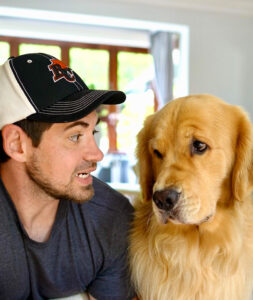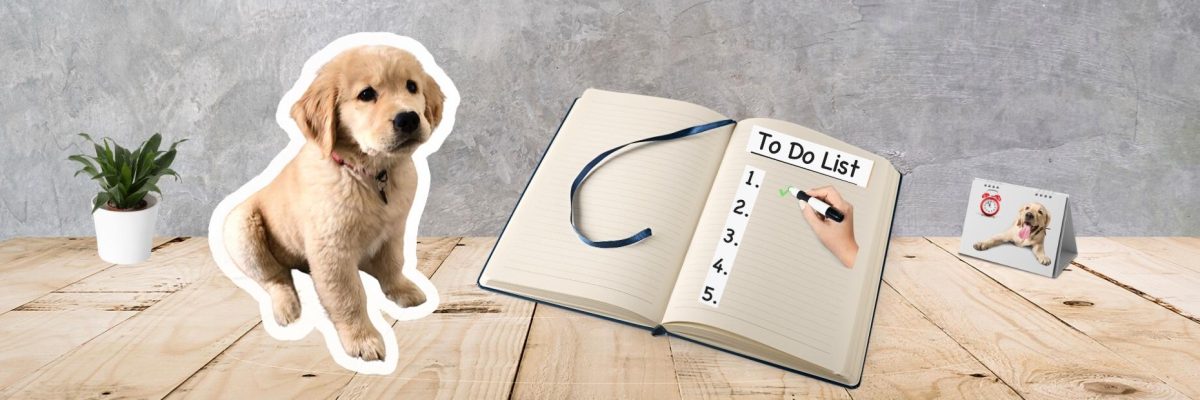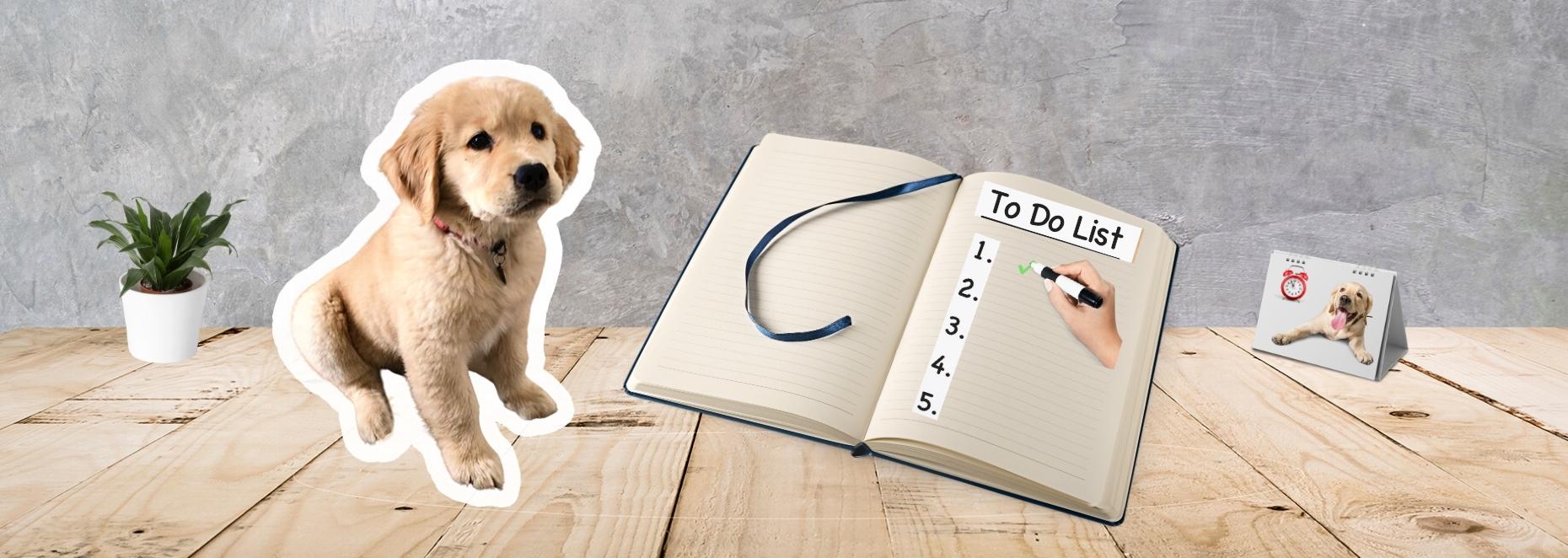
Once you’ve found your pawfect puppy, you’ll still normally have 8 looong weeks to wait until they are ready to leave their mum and littermates and you can finally bring them home. While you’re desperately awaiting visits to the breeder and the latest photos of your new best fren, we’ve put together this 5-step guide to help give your puppy the best start.
1) Decide on dog food and diet
The world of dog food can be pretty mind blowing with so many different brands on the market. Simply speaking, there are three main types: dry (often known as kibble or biscuits), wet (usually in a tin or pouch) and raw (the kind you need to keep in a fridge/freezer). Some owners choose to continue whatever diet the breeder has established for their pup, while others change it up to suit their lifestyle. Ultimately the best choice of dog food for you and your dog will depend on your (and their!) preferences and priorities.
Weighing up your dog’s nutritional needs is important to ensure you are providing the correct amount of food for them from the start. Some food-oriented dogs (we’re looking at you cheeky retrievers!) will put away as much food as is on offer. This can lead to fantastic trainability, but can also inadvertently cause obesity. A pug reluctant to exercise beyond the block will also have differing needs to an energetic working dog like a spaniel or collie that is instinctively on-the-go and burning calories.
Puppies usually start out with 3 small meals a day, which can be supplemented by a small amount of training treats. Marley additionally enjoys a small amount of human foods in his diet, but we have been very careful to introduce this through training and avoid any human food that is dangerous to dogs.
2) Run through exercise
Exercise is life for many doggos, so you might want to think about the who, how, where and when of this in advance. Up until their second vaccinations, it is often advised to limit a puppy’s outdoor exploration and socialisation, but walks will gradually ramp up in length and frequency from thereon. Does your household have enough free time to exercise your puppy? If you aren’t able to regularly allocate time in your schedule, it’s worth seeking the support of a dog walker or doggy daycare to take the pressure off and ensure a happy doggo (see support network below).
As much as your pooch may love exercising, puppies are like babies and also still need plenty of time for rest and sleep. Overdoing intensive exercise, fetch or flights of steps early-on can lead to arthritis or joint issues in later life, especially in breeds predisposed to these conditions.
3) Home in on your house rules

It’s useful to set out any house rules and routine for your puppy from the beginning and be aware of the fact that these are most effective when consistent. Ensure everyone in the household is on the same page as to whether your puppy will be allowed upstairs, on the sofa or in your bed for morning cuddles. Most dogs don’t distinguish between weekdays vs weekends, so if you allow your puppy to do something one day, don’t be surprised if they try their luck next time!
Think about where your puppy will sleep, remembering they will probably be used to sleeping with their mum and littermates and aren’t likely to be potty-trained. Where and who will feed them? Do you plan on using a training clicker or attending training classes? Deciding on these things as a household prior to receiving your puppy, helps you to embrace their chaos without becoming overwhelmed and your puppy to learn the ropes without confusion.
4) Connect with your puppy support network
Every dog will need a support network, which refers to anyone outside of your household that will help in the raising of your puppy. This will include the (emergency) veterinary, any hired help like a dog-walker, trainer, petsitter, kennels, doggy daycare or simply family and friends that volunteer their time.
Your pup will be visiting the veterinary for various vaccinations, microchipping and checkups, so it’s definitely worth checking out those available near you and asking around for any word-of-mouth recommendations. The same goes for any additional help you’ll need such as a dog-walker or doggy daycare.
Most puppies will need to be toilet trained and taught where and how to sleep in their new home, which can require substantial time and energy. Decide in advance who will be responsible for this training. If you are committed to doing this training yourself, can you work from home or take annual leave when you first bring your pup home to help ease the transition?
5) Suss out ‘The Stuff’
There might be a seemingly endless checklist of things you can get for your puppy, but there are some doggie essentials that you’re guaranteed to need when you bring your puppy home (beyond the toys and treats they will gladly accept!). The basics include: a place to sleep (crate, bed, blanket etc), food/water bowls, poo bags and a leash and collar. Crate-training is a popular option and is how we chose to initially house train Marley. It creates a safe space for them that you can make into a cozy den with blankets, hot water bottles or heatable soft toys.
Finally, you may need a playpen or dog gates to dog-proof your house, either as a way to gradually introduce your dog to different areas of your home or section-off parts that are out of bounds to your puppy. It’s also highly advisable to remove any chewable hazards such as wires and consider that any precious furniture may become subject to teeth marks, staining or odor-removing cleaning products! There’s lots to consider when getting a puppy, but being prepared means once they arrive you can just focus on all the fun.
Did you find this guide useful? Comment below any things you wish you had done before bringing your puppy home! If you want to get all the latest from Marley NYC, make sure you click subscribe.


